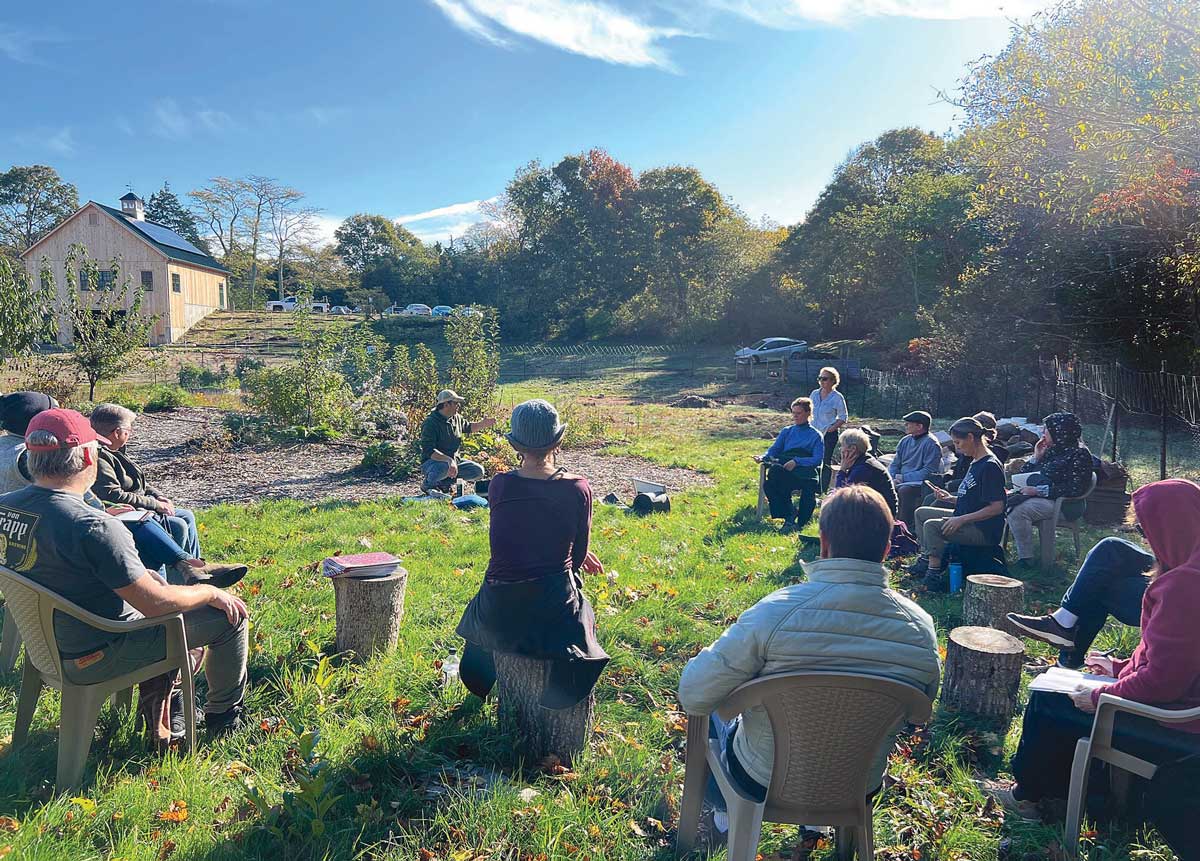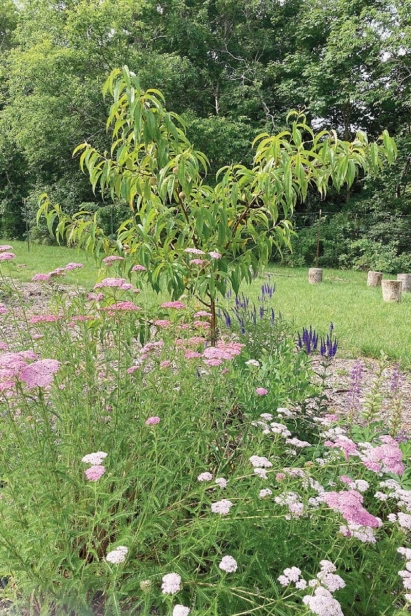Notable edibles-Resilient Roots Digs Into Its New Home
When Kristie Kapp established Resilient Roots in 2018, her intent was to find a space where she could build gardens and hold workshops for the non-profit organization dedicated to training farmers and home growers in permaculture practices. In the early days, Resilient Roots operated out of Kapp’s Homespun Farm in West Barnstable, holding workshops there and occasionally at other people’s homes. In 2021 the organization started negotiating with Barnstable Land Trust (BLT) for a piece of land where they could build a demonstration garden. Today, Resilient Roots has a home base at Fuller Farm in Marstons Mills on a three-quarter-acre of land it leases from BLT.
Barnstable Land Trust bought the land from the Fuller family, which had farmed it for generations. With an old homestead that was falling apart, fields sat practically unused for nearly a decade. In 2022 BLT took down the old building and erected a barn. “We were very happy to see the barn there, because it has a bathroom facility and it opened up the opportunity for us to use the land with more groups of people,” Kapp says. The area also has room for parking – another essential the organization had been lacking when they were based at Kapp’s farm. And, as part of its agreement with BLT, Resilient Roots can store tools and other materials in the barn.
To date, Resilient Roots has occupied a half-acre of the three-quarters it leases, and has planted a food forest; a demonstration garden in one field close to the barn; a variety of native and pollinator gardens; raised beds for vegetables and herbs; and a small pond. In 2023 they will build a pergola, which will provide shade, with grapes and other vines growing on it.
In 2021, volunteers planted a dozen apple, peach, plum, pawpaw and chestnut trees to create the food forest. Around the trees, in eight-foot-diameter circles, they put in plants that support the trees. Some attract beneficial insects, and others fix nitrogen into the soil to help the fruit grow. The following year, volunteers filled in spaces between the trees with beach plums and other shrubs. And they planted a large pollinator bed, to show visitors what they can plant to attract pollinators and other insects. Long beds with paths in between follow the contours of the land, “mimicking what nature does, with different layers – trees, herbs, shrubs, ground cover. We have big plans for planting a lot more,” Kapp promises.
“It’s really starting to come together as a fun destination place,” she says. “That’s what we’re hoping for it to be.” In addition to attending workshops, which are listed on the Resilient Roots website and posted at Fuller Farm, or volunteering, visitors can meander through the gardens. Along the way, plaques explain what the plants are; what permaculture is (essentially, the practice of building a mutually beneficial network of plants that mimics natural ecosystems); the interactions between the plants and why they are important; how the space mimics the area’s natural ecosystems; why it is important to plant native plants that will attract pollinators and beneficial insects; and how they fit into the whole ecosystem on the Cape. “A lot of people want to do the right thing but they just don’t know what that is,” Kapp notes. “We’re trying to demonstrate and model that.”
In June, Resilient Roots will host a weekend of permaculture tours at homes where they have held permablitzes, or “garden raisings,” to establish the homes’ landscapes (see related article in Edible Cape Cod, spring 2019 issue). The six locations, in Harwich, Dennis, Orleans, Barnstable, Centerville and Falmouth, range from just-planted to five-year-old sites. Touring them at the various stages, “People will be able to understand what it means to create an eco-friendly landscape and what it will look like on the ground,” Kapp explains.
Because the plantings at Kapp’s farm are more established than those at Fuller Farm, Resilient Roots will continue to hold some workshops there. But the majority will be at the new home base. Kapp says that having the new space has created “a huge opportunity for educating people on so many different ideas and issues and giving them a more visual place to imagine what they can do in their own yards.”
Resilient Roots is ready to help make those visions reality.





